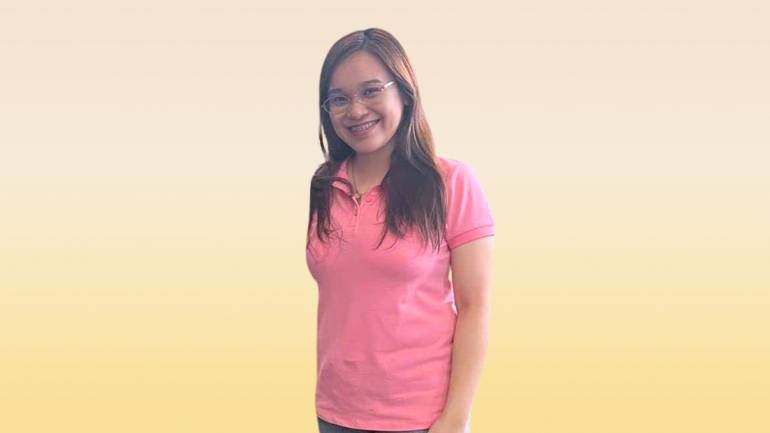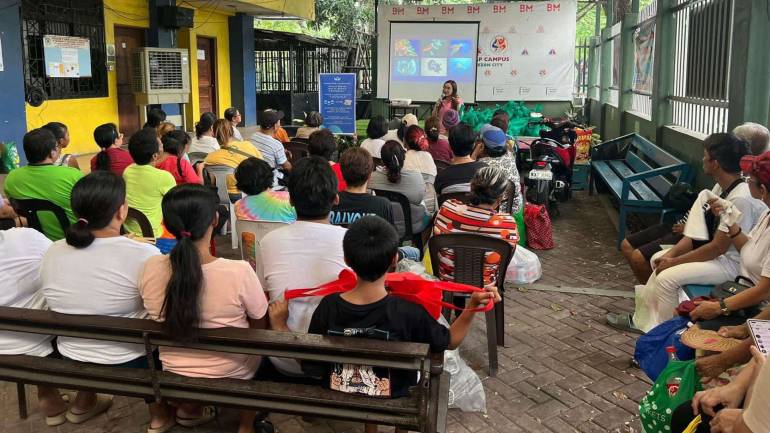Filipino Catholic collaborates with local government to champion change in the Fight against plastic pollution

“Caring for the environment is caring for other people. Even small actions, when done with love, can create ripple effects,” Patricza Braganza
Patricza Braganza has been dedicated to researching plastic pollution since 2015, a commitment that began with her master's thesis and continues as she pursues her doctorate.
Her work is fueled by a deep concern for the environment and a desire to see tangible change in how plastic waste is managed in the Philippines.
“At that time, the Philippines was ranked as the third-highest contributor to plastic pollution globally, according to a study,” Patricza explains. “Alarmingly, all the top five countries were in Asia.”
After completing her master's degree, Patricza felt compelled to continue her research on plastic pollution, which had become her advocacy.
She observed that while the country had research and policies in place, their implementation was inefficient, prompting her to take action at a grassroots level.
As an only child, Patricza chose not to pursue a religious vocation despite being inspired by the nuns at St. Theresa’s College, a Catholic school in Quezon City.
Instead, she channeled her passion into environmental advocacy, motivated by a sense of responsibility to her parents and community.
Recently, Patricza launched an innovative program called "Palit Bote, Palit Bigas," in partnership with the local government unit of Barangay UP Campus, where she studies at the University of the Philippines, Diliman.
The program encourages residents to exchange single-use plastic bottles for rice, with participants bringing at least three plastic bottles to receive one kilo of rice in return.
On August 3, around 100 residents participated in the program, bringing plastic bottles and receiving rice donated by Patricza and other contributors.
The collected plastic bottles are sold to junk shops, which then recycle them into new products.
Patricza envisions a future where barangays could recycle these plastics into items like chairs, furniture parts, and pots if they had access to recycling machines, thereby generating additional funds for the community.
In addition to running the exchange program, Patricza conducts educational talks for residents on managing plastic waste at home.
She emphasizes the harmful effects of plastic pollution on the environment and human health, highlighting that plastic can take up to 1,000 years to break down and often ends up as microplastics in human waste, blood, and lungs.
“Plastic pollution poses a serious threat to marine life, which in turn threatens food security,” Patricza warns. “When marine animals ingest plastic, harmful chemicals enter the food chain, affecting humans who consume fish.”
Plastic pollution is a pressing issue in the Philippines, where an estimated 2.3 million tons of plastic waste are generated annually, much of which ends up in the ocean.
The recent flooding in Metro Manila, which left plastic waste strewn across the streets, is a stark reminder of the growing problem.
Patricza believes that everyone must do their part in addressing plastic pollution, echoing the Church’s call to care for the environment. “Caring for the environment is caring for other people. Even small actions, when done with love, can create ripple effects,” she says.
At 32, Patricza remains hopeful that more people will take the issue of plastic pollution seriously, recognizing the severe threats it poses to both the environment and human life.
She continues her studies in Public Administration at UP Diliman, determined to make a difference in her country’s fight against plastic pollution.










